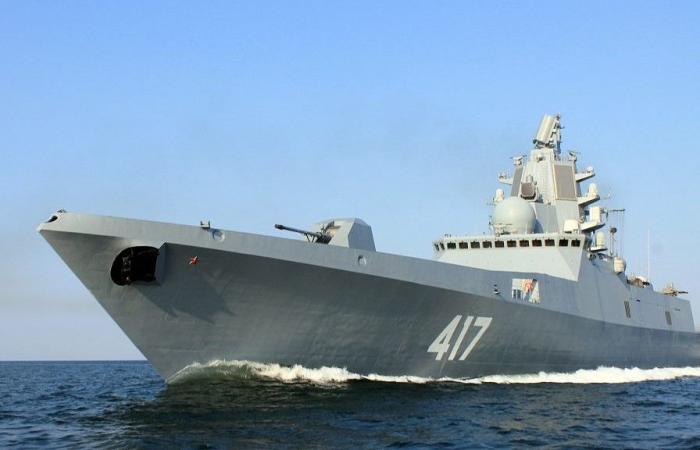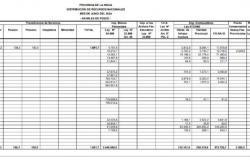The frigate of the Russian Navy Admiral Gorshkov which visited Cuba in early June carried out exercises in the Atlantic Ocean searching for submarines and using a helicopterThe Ministry of Defense reported on Tuesday through a statement on Telegram.
The helicopter crew “practiced tactical techniques to search and track submarines in the Atlantic Ocean,” the ministry said, cited by Reuters.
At a distance of more than 50 kilometers (31 miles) from the ship, pilots carried out a series of measures to search for the submarines and a total of five landings were made on the ship’s deck, the ministry added.
The Almirante Gorshkov frigate and a Kazan nuclear-powered submarine sailed into Havana Harbor on June 12 after conducting “high-precision missile weapons” training in the Atlantic Ocean.
The fleet of ships of war Russia He left Havana last Monday, June 17, after staying in the Cuban capital for five days, in a demonstration of force by the Kremlin. Days later she walked off the coast of Florida.
According to satellite tracking sites and open intelligence reports consulted by DIARIO DE CUBA, the naval group, made up of the frigate Almirante Gorshkov, the tanker Pashin and the rescue tug Nikolai Chiker, It was in the early morning of June 19 almost off West Palm Beach.
The movements of the Russian naval group are closely followed by around a dozen naval and air assets from the US and Canada.which have been deployed since last week off the coast of Cuba and accompanied the Kremlin flotilla in its movement south near the US coast before arriving in Havana.
During a public appearance, Maj. Gen. Pat Ryder, Pentagon press secretary, said Washington will continue to “monitor” Russia’s military assets.
Regarding the proximity of the flotilla to US territory, he assured that “we do not see any threat to the homeland and this type of exercises is not new. We have seen them happen over the years. So there is nothing worrying from our perspective. point of view, but, again, we will continue to monitor,” he insisted.
Russian Navy Commander-in-Chief Alexander Moiseev also said that the campaign of Russian ships in Cuba had the desired effect and that the Kremlin “will continue the practice of sailing ships to distant sea areas.”
Confirming that the visit to Cuba was a propaganda operation, The military man said that “the proximity of the detachment of ships of the Northern Fleet (to the borders) of our current opponent irritates someone. For us this is a very important component, and we trusted the actions of our forces. In addition, it shows support for the Republic of Cuba, which is close to us. The campaign had an effect.”
In a recent program The Dots to the I’s From DIARIO DE CUBA, Professor Laura Tedesco, from the University of Saint Louis, in Madrid, considered that “it is not really so clear” why Putin sent the ships to Havana, “if for threaten the US or as a way to return to the Cold War era.”
“Putin has a very big problem with the Ukraine issue. It is moving the waters, create uncertainty at an electoral moment for the US. This may have an impact on some Americans or on the press, perhaps to put together a speech that has more to do with the triumph of the Republican candidate than the Democratic candidate,” the academic explained.
Máximo Omar Ruiz Matoses, former lieutenant colonel of the Revolutionary Armed Forces (FAR) and the Ministry of the Interior (MININT), said in the program debate that “Putin is crying in the same handkerchief that the Cuban dictatorship cries”, due to the Russia’s serious problems in the war against Ukraine.
“The visit of the Russian naval detachment implies nothing, nor does the political correlation change. If he had come with a million cans of Russian meat, he would have raised some hope in the Cuban people, but the Russians don’t have any. That meat is for the soldiers who are killing on the front,” said the former military man.
Along the same lines, independent journalist and DIARIO DE CUBA columnist Boris González Arenas downplayed the population’s expectations regarding the ships’ visit.
“The comments you may bring are those reminiscent of the Soviet era, when at least we had food; but, in reality, this will not last more than two or three days. They are inconsequential for what is really imperative in the day Cuban’s day: putting a plate of food on the table,” added González Arenas.






